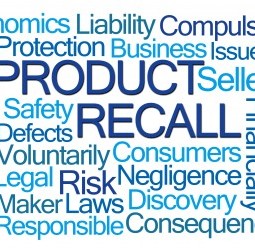A study published in the Journal of the American Medical Association (JAMA) in February 2016 found that certain medications used to treat chronic heartburn may be linked to chronic kidney disease and kidney failure. The medications, called proton pump inhibitors (PPIs), are some of the most commonly used medications on the market today.
Another study published in mid-April 2016 by the Journal of the American Society of Nephology found that PPI users had a 28% higher risk of developing chronic kidney disease over patients who take other heartburn medications. Additionally, patients who took PPIs also had a 96% increased chance of developing end-stage kidney failure within five years of starting to use the medications. The study also found that the risk of developing kidney problems greatly increases with the amount of time the medication was taken.
Two of the most popular PPIs, Nexium and Prilosec, have been available by prescription for over ten years, and they are being closely scrutinized to understand the long-term effects on a patient’s kidneys.
Use of PPIs
The US National Institute of Diabetes and Digestive Kidney Diseases reported nearly 20% of Americans suffer from gastroesophageal reflux disease (GERD), requiring medication like PPIs Nexium and Prilosec. GERD occurs when a weakness in a muscle between the esophagus and stomach causes stomach acid to rise up into the esophagus. PPIs help suppress stomach acid so damage in the esophagus can heal. Currently, nearly 15 million Americans take PPIs for GERD.
What Is Chronic Kidney Disease?
Chronic kidney disease is the gradual loss of kidney function over time. As the kidneys lose function, waste can build up in the bloodstream, causing anemia, weak bones, and nerve damage, among other symptoms. If chronic kidney disease is not treated, it can lead to kidney failure, requiring the patient to undergo dialysis or a complete kidney transplant. Because chronic kidney disease happenes gradually, and because the symptoms are generic, the dangerous medical condition can go undiagnosed until the patient loses complete kidney function.
Failure To Warn
For patients who have suffered chronic kidney disease and/or kidney failure after taking Nexium or Prilosec, a new lawsuit seeks to hold the drug manufacturers, AstraZeneca and/or Proctor and Gamble, responsible for failing to warn patients of the serious health risks associated with the use of their products.
Frequently Asked Questions
Frequently Asked Questions
In the United States, a tort refers to a, “body of rights, obligations, and remedies that is applied by courts in civil proceedings to provide relief for persons who have suffered harm from the wrongful acts of others.”
What is MDL?
An MDL stands for multidistrict litigation and is a special legal procedure conducted in federal court that is designed to quickly conduct the handling of complex cases, which can include dangerous drug and medical device lawsuits.
Product Defects
It means the manufacturer made an error either in the design or the fabrication of a product that causes it to not work as intended. This can be especially dangerous in many cases, such as those of faulty medical devices and prescription drugs.
Defective Design
A defective design in a product is one that is so great, the product cannot be utilized for the purposes intended or is even made hazardous as a result of the defect, imperfection, or design flaw. In the case of medical devices, this can be a deadly mistake.




